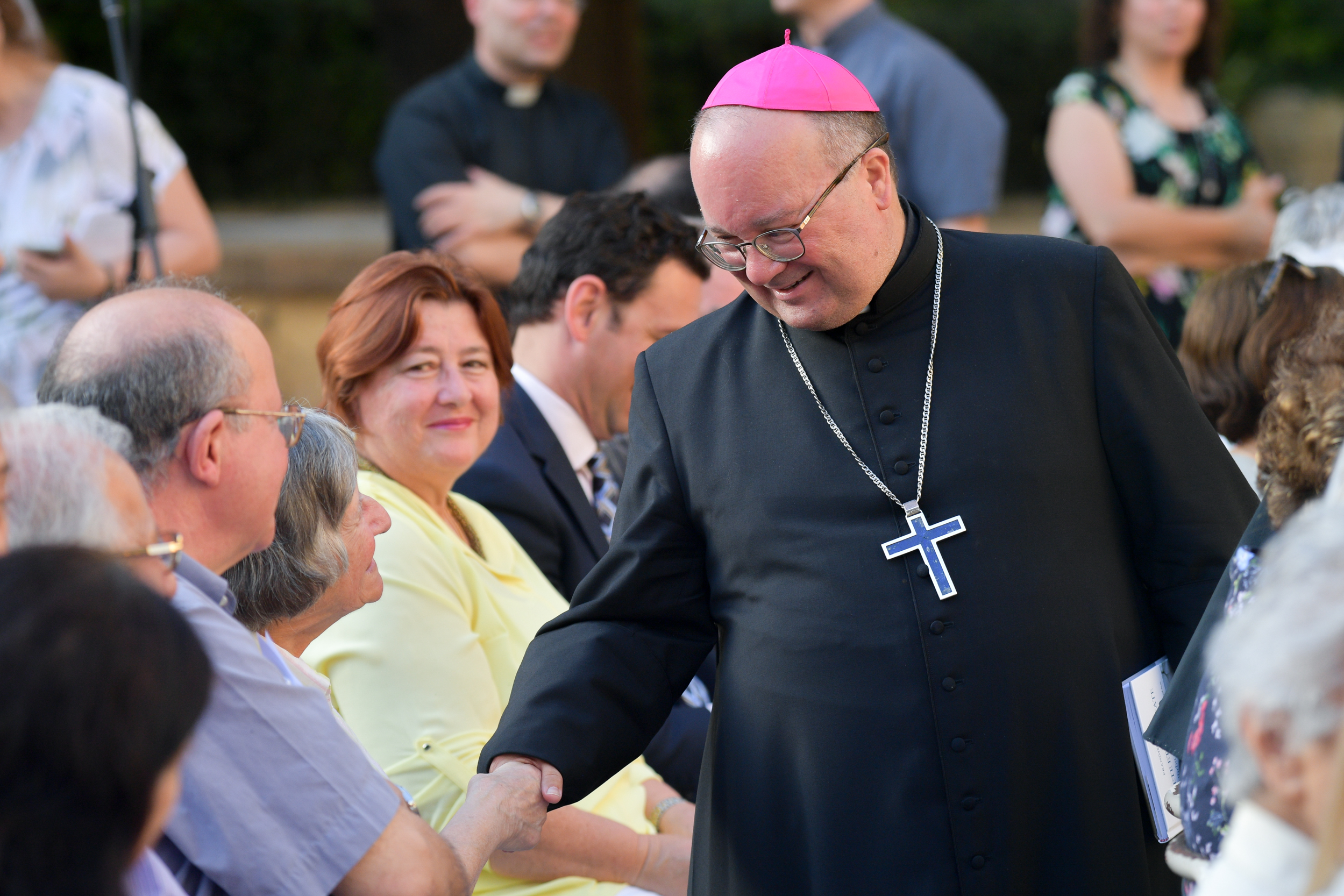-
-
Archbishop Charles J. Scicluna says that although our culture teaches us that only those who died for Christ are saints, in the new Exhortation Gaudete et Exsultate (Rejoice and Be Glad), Pope Francis has managed to bring down holiness from its pedestal. In the five chapters of the Exhortation, the Pope explains how in today’s world, holiness can be achieved in the family, in the workplace and in consecrated life, and other places.
During the presentation of the Maltese translation of the apostolic exhortation Ifirhu u Thennew that was held at the Seminary, Archbishop Charles J. Scicluna outlined how holiness can be achieved by everyone including mothers, fathers, grandparents, and even neighbours, by performing small gestures daily.
The Archbishop remarked that Pope Francis does not like saints with “dreary faces” or “waste time complaining” and so he exhorts us to be “joyful and full of good humour” in our life. It is for this reason that joy and gladness of Christian living are the title of the exhortation, Gaudete et Exsultate, the same words spoken by Jesus when he addressed the persecuted and the humiliated because they follow him (cf. Mt 5:12).
The Archbishop stressed, that for Pope Francis, the eight beatitudes we find in the Gospel are the way to holiness. The Pope says that when we live in the beatitudes of today’s world, we are going against the desire to covet, to be vain, to treat others with indifference, to be violent, or to oppress others.
The Pope also speaks with a certain insistence about our spiritual combat with the forces of evil and refers to the “spiritual corruption” as worse than the fall of a sinner because this leads to the perception that everything appears acceptable.
The Apostolic Exhortation Gaudete et Exsultate is the third exhortation by Pope Francis, that follows Evangelii Gaudium (2013) and Amoris Laetitia (2016).
A print version of the exhortation can be obtained from the Emmaus shop in Birkirkara. An online version can be found on the official website of the Archdiocese of Malta www.knisja.mt and on the website of the Secretariat for the Laity www.laikos.org, where an audio version is also available for the visually impaired.
-

-

-

-

-






